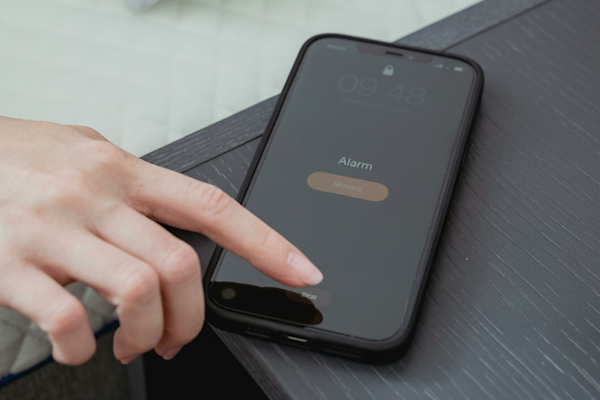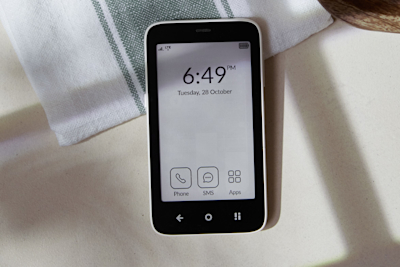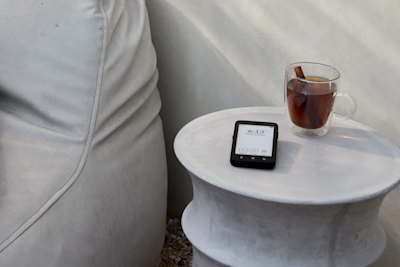
Why Smartphone Alarms May Be Ruining Your Sleep
When Your Smartphone Alarm MAY BE Part of the Problem
Think about how most of us end the day: phone in hand, thumb still scrolling, the glow of the screen cutting into the darkness. When we finally set an alarm, plug in the charger, and leave the device by the bed, the phone is often just inches from our head (if not under the pillow). Hours later, the same device jolts us awake with a harsh tone, demanding we rise before we’re ready. From the very first moment, the day starts with urgency, not ease.
It’s easy to forget that smartphones were never designed with sleep in mind. They were built to capture attention, deliver notifications, and keep us connected. Yet, for many people, they’ve replaced the quiet simplicity of an alarm clock. As a result, that trade-off may be costing us deeper rest, calmer mornings, and healthier routines.
You might think your smartphone alarm is a reliable way to start the day. After all, it’s always with you, however, what if it’s actually undermining your rest?
For many of us, the smartphone isn’t just used as an alarm clock. It’s actually the last thing we see at night and the first thing we touch in the morning.
However, that very habit comes with hidden costs.
The very device you trust to wake you up may also be the reason you struggle to fall asleep, stay asleep, and feel rested.
1. Blue Light Keeps You Awake Longer
Scrolling before bed exposes you to blue light, which suppresses melatonin, that’s the hormone that signals your body it’s time to sleep.[1]
Even a few minutes of late-night screen time can shift your internal clock, making it harder to fall asleep and reducing overall sleep quality.
2. Notifications Don’t Respect Bedtime
You don;t need us to tell you that phones are built for constant connectivity, not peace of mind.
A buzz from a late-night message or a vibration from an app notification can fragment your sleep cycles without you even fully waking up. Over time, these micro-disruptions can leave you feeling foggy and drained in the morning.
3. Alarms That Shock, Not Soothe
Most smartphone alarms use harsh, abrupt tones that yank you out of deep sleep.
Waking up this way triggers a spike in stress hormones and often leads to sleep inertia, which is that heavy grogginess that lingers long after you’ve silenced the alarm.
Check out our article about what science says about the best alarm sounds for waking up
4. The Stressful Morning Scroll
When your alarm lives on the same device as your emails, news feeds, and social media apps, the temptation to dive straight into digital chaos is strong.
So, instead of beginning the day with clarity, your mind is immediately pulled into work, notifications, and the endless scroll.
READ: Mindful Mornings: The benefits of an offline morning routine
What to Use Instead for Gentle, Natural Waking
1. A Mindful Alarm Clock Devices designed solely for healthy sleep and gentle wake-ups, like Mudita Bell or Mudita Harmony, offer an intentional alternative.
These devices are free of glowing screens & digital distractions, so they wake you with soothing chimes, calm melodies, or ambient tones that respect your body’s natural rhythms.
2. Sunrise Simulation Light-based alarm clocks gradually light up to mimic sunrise, helping your body wake more naturally. This gentle cue improves mood and reduces morning grogginess. Both Mudita Bell & Mudita Harmony feature a light-enhanced alarm, which lights up at a gentle 2,700K, very close to that of natural sunlight in the morning.
The sun rises at a deeply orange 2,000 K. It then transitions to a rich, golden 3,500 K. Mudita Harmony is equipped with a soft, adjustable backlight that lights up at a gentle 2,700 K, very close to that of natural sunlight in the morning.
This provides a soothing and gentle way to wake up, aiding your circadian rhythm, without the harsh beeps and blares of a smartphone alarm
3. Natural Sounds Waking to the sound of birdsong, flowing water, or soft music creates a calmer start to the day compared to the jarring beep of a smartphone alarm.
4. A Consistent Routine Even the best alarm can’t make up for poor sleep habits. Going to bed and waking at regular times helps anchor your circadian rhythm so mornings feel smoother and less forced.
The Case for Leaving Your Phone Outside the Bedroom
Separating your sleep sanctuary from your smartphone is one of the simplest ways to improve your rest.
By swapping a phone alarm for a mindful alarm clock, like Mudita Bell or Mudita Harmony, you protect your sleep from blue light, constant connectivity, and the stress of waking into distraction.
We all know that good sleep is the foundation of health and focus. The way you wake up matters just as much as how you drift off.
That’s why choosing tools designed with your well-being in mind helps you start each day feeling restored, not rushed.
Small change, big difference! Replace your smartphone alarm with a mindful alarm clock from Mudita and give yourself the gift of gentler mornings and deeper, healthier sleep.
Related stories

Why Mudita Kompakt is Considered a Flexible Minimalist Phone
Mudita Kompakt is a flexible minimalist phone designed for real life. Learn how it balances simplicity, intentional app choice, and mindful connectivity.

What is Blue Monday & How to Deal with Seasonal Blues
Feeling the winter blues? Discover how to overcome seasonal sadness with mindfulness, better sleep, limited screen time, and meaningful connections.

Why Kompakt is a Different Kind of Upgrade for the New Year
A different kind of upgrade for the new year. Discover how Mudita Kompakt, a minimalist phone, helps reduce digital overload & restore focus, balance & clarity.
If you'd like to receive the best stories from our blog, keep up to date with our progress and get notified about our product releases and special discounts.